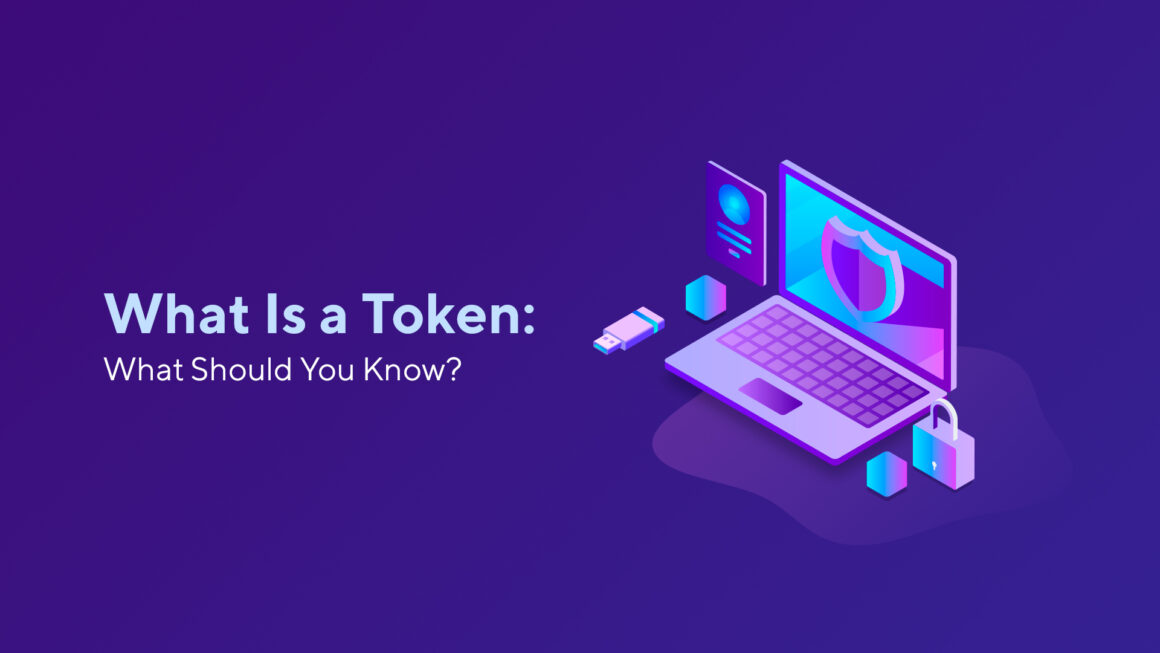Passwords, one-time codes, keys, and tokens are common today. However, a lot of people still know nothing about their existence. What are tokens? Well, they keep our accounts and data safe every minute.
Thus, it’s important to know exactly how the most basic mechanisms for protecting information work. An authentication token is one of them. What is a token? Well, authentication tokens increase the reliability of data protection and at the same time allow comfortable use of services.
What Are Tokens: Everything You Need to Know
So, what is a token? A token is designed to authorize access to a network service. It looks like a USB flash drive or smart card (plastic card with a chip) and ensures a user’s information security.
What are tokens? What are the key differences between a token and a regular flash drive? Let’s try to find out!
A token serves as an anti-handling device for a private key, and thus excludes the possibility of its transfer and copying. A token is password protected against unauthorized use (no more than 7 log-in attempts). If the password isn’t entered correctly for the seventh time, the key will be blocked.
What Is a Hard Token: Key Things to Know
An example of using multi-factor authentication and a one-time password is hardware token authentication. What is a hard token? Let’s find out!
Instead of entering a password multiple times, a user has a special device ‘token’ generating passwords that are valid only once. A token is a device with a display and keyboard.
So, what is a hard token? Howe was mentioned before, hardware token isn’t connected to a computer, smartphone, or another device, but is used independently. It generates a new, unique code regularly (e.g. every minute).
To generate a one-time password, a user must enter his/her PIN code. Thus, for authentication, a user needs to:
-
- Have a special device — token,
-
- Know a PIN code.
It’s necessary to use the received one-time password to enter the system. Obviously, authentication with hard tokens is safer than using a static password. However, it has one big drawback. Users need to have a separate device with them — a token. When solving this problem, the idea came up to use devices that people always carry with them as tokens — mobile phones, PDAs, laptops, etc.
A special app is installed on a user’s device — a software (virtual) token. It works on the principle of two-factor authentication. After installing the app, a user needs to go through the process of registering his/her device on the desired server. Further, to generate a one-time password, a user needs to enter the PIN code in the app on his/her device.
What Is a Soft Token: A Complete Guide
What is a soft token? A soft token is a software that creates one-time passwords. Usually, security tokens are small hardware devices that can generate secure and individual PINs on their built-in LCD screen.
Depending on the model, you create a new password after pressing a button or after entering a lock code. Tokens are used in environments with high-security requirements, for example as part of systems with multi-factor authentication. While these hardware-based systems are more secure, they are also more expensive.
Still, what is a soft token? Software tokens are an attempt to take advantage of the security benefits of multi-factor authentication on a broad scale and at a lower cost. In principle, an app on a smartphone can perform the same tasks as a conventional hardware token. Like this one, a smartphone also offers an easy-to-remember location for secure login information — the device itself.
Unlike hardware tokens, however, smartphones are systems that are connected to the Internet and are therefore considerably less secure. How secure or insecure they are, depends largely on the operating system and software used.
What is a token? What other interesting information do you know? Feel free to share your knowledge in the comments!

Leave a Reply